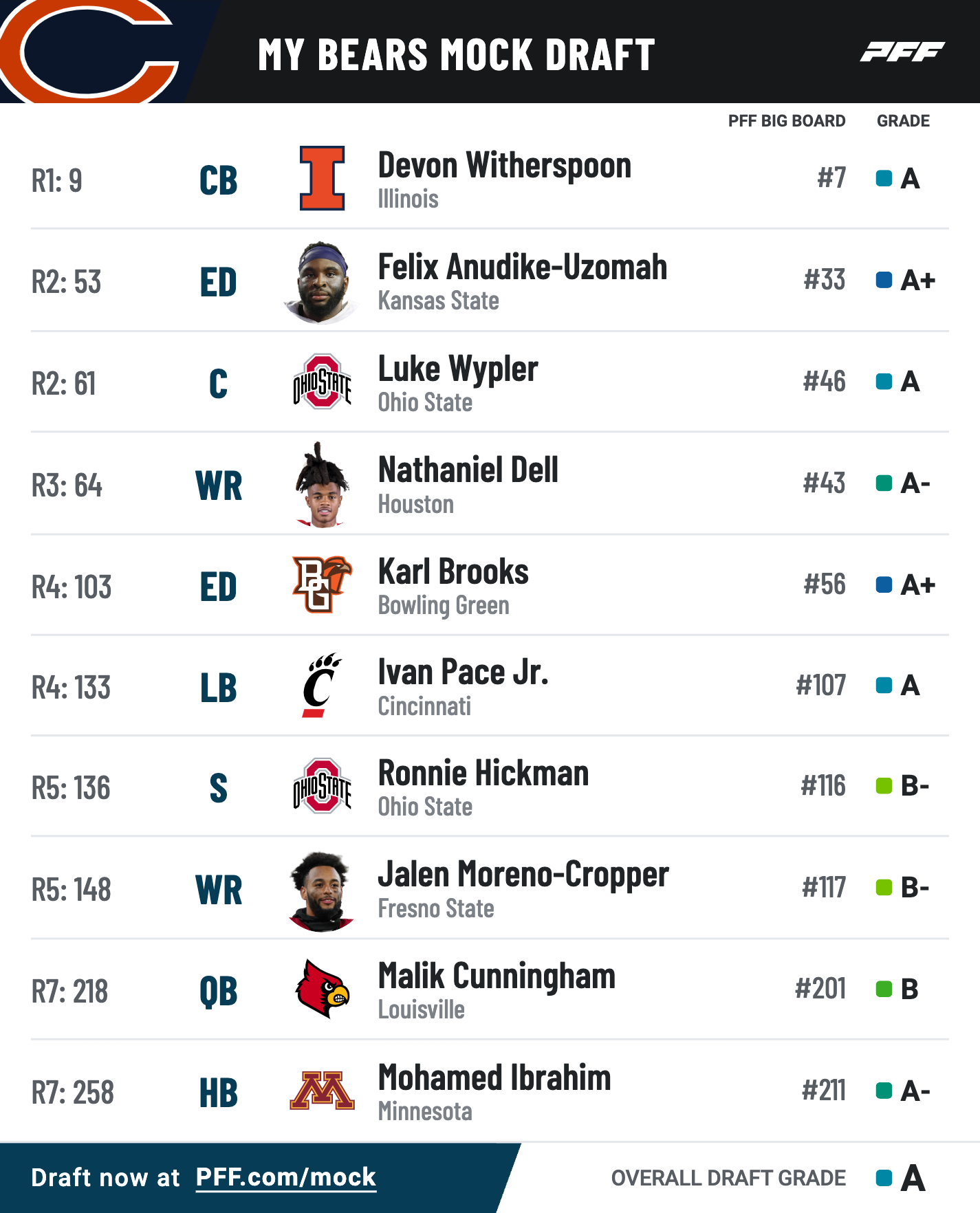ESPN Fantasy Grades are a game-changer for fantasy football enthusiasts looking to dominate their leagues. These grades provide a comprehensive evaluation of players' performances, offering valuable insights into their potential contributions to your fantasy team. Whether you're a seasoned veteran or a newcomer to the world of fantasy sports, understanding these grades can significantly enhance your drafting and management strategies. In this article, we'll dive deep into the nuances of ESPN Fantasy Grades, explore how they can benefit you, and answer key questions to help you stay ahead of the competition.
Fantasy football has evolved from a casual hobby to a highly competitive arena where every decision matters. ESPN Fantasy Grades are designed to simplify this complexity by offering a clear, data-driven assessment of player performance. These grades take into account various metrics, such as scoring efficiency, consistency, and matchup potential, to provide a holistic view of a player's value. By leveraging this information, you can make informed decisions that maximize your team's chances of success.
For those who are serious about winning their fantasy leagues, ESPN Fantasy Grades are an indispensable tool. They not only help you identify top performers but also uncover hidden gems who might be flying under the radar. This article will guide you through the intricacies of these grades, explain how they are calculated, and provide actionable tips to help you leverage them effectively. By the end, you'll have a solid understanding of how to use ESPN Fantasy Grades to elevate your fantasy football game.
Read also:Discover The Hidden Gem Of Novi 29 Park Novi
Table of Contents
- What Are ESPN Fantasy Grades?
- How Are ESPN Fantasy Grades Calculated?
- Can ESPN Fantasy Grades Predict Player Performance?
- How to Use ESPN Fantasy Grades Effectively?
- What Are the Limitations of ESPN Fantasy Grades?
- Why Are ESPN Fantasy Grades Important for Fantasy Football?
- How to Interpret ESPN Fantasy Grades?
- What Are the Common Mistakes When Using ESPN Fantasy Grades?
- How Can ESPN Fantasy Grades Help You Win Your League?
- Frequently Asked Questions About ESPN Fantasy Grades
What Are ESPN Fantasy Grades?
ESPN Fantasy Grades are a proprietary scoring system developed by ESPN to evaluate the performance of fantasy football players. These grades are designed to provide a quick and easy way for fantasy managers to assess a player's value and potential contribution to their team. The grades are typically presented on a scale, with higher grades indicating better performance and lower grades suggesting underperformance or inconsistency.
The grading system takes into account a variety of factors, including a player's recent performance, their matchup potential, and their overall consistency. For example, a player who consistently scores double-digit fantasy points in tough matchups may receive a higher grade than a player who only performs well against weaker opponents. This ensures that the grades reflect not just raw numbers but also the context in which those numbers were achieved.
By providing a standardized way to evaluate players, ESPN Fantasy Grades make it easier for fantasy managers to compare players across different positions and leagues. Whether you're deciding between two running backs or trying to determine whether to start a wide receiver or a tight end, these grades can help you make the right call.
How Are ESPN Fantasy Grades Calculated?
Understanding how ESPN Fantasy Grades are calculated is key to using them effectively. The calculation process involves a combination of statistical analysis and expert evaluation. ESPN uses advanced algorithms to analyze a player's performance metrics, such as yards gained, touchdowns scored, and turnovers committed. These metrics are then weighted based on their importance in fantasy football scoring systems.
In addition to raw statistics, ESPN also considers situational factors that can impact a player's performance. For instance, a quarterback playing in a dome may receive a higher grade than one playing in adverse weather conditions. Similarly, a wide receiver facing a top-tier defense may receive a lower grade than one going up against a weaker secondary. This ensures that the grades are not just based on numbers but also take into account the context of the game.
Finally, ESPN's team of fantasy football experts reviews the data to ensure that the grades accurately reflect a player's value. This human element helps to account for intangibles that algorithms might miss, such as a player's recent injury history or their role in their team's offensive scheme. By combining data-driven analysis with expert insight, ESPN Fantasy Grades provide a well-rounded evaluation of player performance.
Read also:Spongebob Xbox Console The Ultimate Guide To Gaming Fun
Can ESPN Fantasy Grades Predict Player Performance?
One of the most common questions about ESPN Fantasy Grades is whether they can predict future player performance. While these grades are not a crystal ball, they do offer valuable insights that can help fantasy managers make informed decisions. By analyzing past performance and current trends, ESPN Fantasy Grades provide a snapshot of a player's potential contributions in upcoming games.
For example, a player with consistently high grades over several weeks is likely to continue performing well, especially if they have favorable matchups ahead. On the other hand, a player with fluctuating grades may be more unpredictable, making them a riskier choice for your starting lineup. This predictive power is one of the reasons why ESPN Fantasy Grades are so highly regarded in the fantasy football community.
How Reliable Are ESPN Fantasy Grades for Weekly Matchups?
When it comes to weekly matchups, ESPN Fantasy Grades can be a reliable tool for fantasy managers. The grades take into account the strength of the opposing defense, the player's role in their team's game plan, and other situational factors that can influence performance. This makes them particularly useful for deciding which players to start or sit in any given week.
How to Use ESPN Fantasy Grades Effectively?
Using ESPN Fantasy Grades effectively requires more than just glancing at the numbers. To get the most out of these grades, fantasy managers need to understand how to interpret them and apply them to their specific league settings. Here are some tips to help you make the most of ESPN Fantasy Grades:
- Compare Players Across Positions: ESPN Fantasy Grades allow you to compare players from different positions, helping you make informed decisions about your starting lineup.
- Focus on Trends: Look for patterns in a player's grades over time. Consistent high grades indicate reliability, while fluctuating grades suggest inconsistency.
- Consider Matchups: Always factor in the player's upcoming matchup when evaluating their grade. A high grade against a weak defense is more meaningful than a high grade against a strong defense.
What Are the Best Practices for Using ESPN Fantasy Grades?
To maximize the value of ESPN Fantasy Grades, it's important to follow best practices. Start by integrating these grades into your weekly research routine. Use them as a starting point for evaluating players, but don't rely on them exclusively. Supplement the grades with other sources of information, such as injury reports, expert analysis, and your own observations.
What Are the Limitations of ESPN Fantasy Grades?
While ESPN Fantasy Grades are a powerful tool, they are not without limitations. One of the main drawbacks is that they are based on past performance, which may not always predict future results. A player's grade could be skewed by a single outstanding or poor performance, leading to an inaccurate assessment of their true value.
How Do ESPN Fantasy Grades Handle Injuries?
Injuries are a significant factor in fantasy football, and ESPN Fantasy Grades do take them into account. However, the grades may not always reflect the full impact of an injury, especially if it's a recent development. Fantasy managers should always cross-reference the grades with the latest injury reports to ensure they have the most accurate information.
Why Are ESPN Fantasy Grades Important for Fantasy Football?
ESPN Fantasy Grades are an essential tool for anyone serious about succeeding in fantasy football. They provide a quick and easy way to evaluate players, helping fantasy managers make informed decisions about their rosters. By offering a standardized grading system, ESPN Fantasy Grades ensure that all players are evaluated on the same criteria, making it easier to compare them across positions and leagues.
How Can ESPN Fantasy Grades Enhance Your Draft Strategy?
During the draft, ESPN Fantasy Grades can help you identify undervalued players who may be overlooked by other managers. By focusing on players with consistently high grades, you can build a strong foundation for your team and gain a competitive edge.
How to Interpret ESPN Fantasy Grades?
Interpreting ESPN Fantasy Grades requires a nuanced understanding of the grading system. While the grades themselves are straightforward, their implications can vary depending on the context. For example, a high grade for a quarterback may be more significant in a league that rewards passing touchdowns heavily, while a high grade for a running back may be more valuable in a league that prioritizes rushing yards.
What Are the Common Mistakes When Using ESPN Fantasy Grades?
One of the most common mistakes fantasy managers make is relying too heavily on ESPN Fantasy Grades without considering other factors. While these grades are a valuable tool, they should be used in conjunction with other sources of information, such as injury reports, matchup analysis, and expert opinions.
How to Avoid Over-Reliance on ESPN Fantasy Grades?
To avoid over-reliance on ESPN Fantasy Grades, make sure to incorporate a variety of data points into your decision-making process. Use the grades as a starting point, but always cross-reference them with other information to ensure you have a complete picture of a player's value.
How Can ESPN Fantasy Grades Help You Win Your League?
ESPN Fantasy Grades can be a key factor in helping you win your league by providing actionable insights into player performance. By using these grades to identify top performers and uncover hidden gems, you can build a strong and competitive team that is well-positioned for success.
Frequently Asked Questions About ESPN Fantasy Grades
Here are some frequently asked questions about ESPN Fantasy Grades to help you better understand their role in fantasy football:
- Are ESPN Fantasy Grades updated weekly? Yes, ESPN Fantasy Grades are updated weekly to reflect the latest player performances and trends.
- Do ESPN Fantasy Grades account for injuries? Yes, injuries are factored into the grades, but it's always a good idea to check the latest injury reports for the most accurate information.
By leveraging ESPN Fantasy Grades effectively, you can gain a significant advantage in your fantasy football league. These grades provide a wealth of information that can help you make smarter decisions, build a stronger team, and ultimately achieve success in the highly competitive world of fantasy football.

